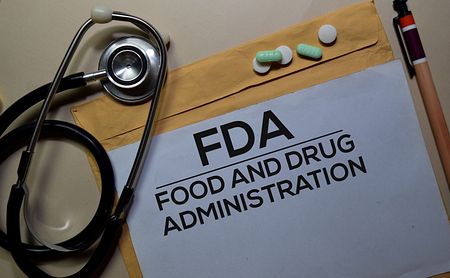Review of Intranasal LV-101 Therapy Gets FDA Priority Status

bangoland/Shutterstock
The U.S. Food and Drug Administration (FDA) has granted priority review to LV-101 (intranasal carbetocin), an investigational treatment for the distress behaviors and insatiable hunger that accompany Prader-Willi syndrome (PWS).
The decision reduces the review period for the medication’s new drug application (NDA) to six months, down from the standard 10 months. Therapy developer Levo Therapeutics expects a decision on approval from the FDA by the end of the year.
“We are genuinely appreciative that FDA has accepted our NDA for Priority Review,” Sara Cotter, company CEO, said in a press release. “We are looking forward to working with the Agency during the coming months. If approved, intranasal carbetocin will be the first specific treatment for the significant and disabling behavioral symptoms of PWS.”
Carbetocin, the therapy’s active ingredient, mimics the hormone oxytocin but has greater affinity to oxytocin receptors than does oxytocin itself, while showing less affinity for the related vasopressin receptor.
Popularly known as the “love hormone,” oxytocin plays a key role in the brain’s reward-response system, which underlies activities as varied as developing empathy and trust, to feeling satisfaction from food. People with PWS appear to have fewer oxytocin-producing brain cells, which might contribute to their social, emotional, and feeding difficulties.
LV-101 is an intranasal formulation of carbetocin, meaning that it is inhaled through the nose. It is taken three time daily before meals.
The Phase 3 CARE-PWS trial (NCT03649477) recently found that the lower of two doses of LV-101 (3.2 mg), tested among participants ages 7 to 18 years, led to significant reductions in hyperphagia (insatiable hunger), anxiety, and distress over an eight-week treatment period. The higher dose, 9.6 mg, did not ease hyperphagia and neither dose was effective at reducing obsessive-compulsive behaviors.
LV-101 was generally well-tolerated. Following this placebo-controlled period, CARE-PWS participants could transition into a long-term follow-up period, where improvements were maintained with LV-101.
“Currently there are no therapies approved by FDA to treat the most challenging aspects of PWS, namely the constant hunger and distress that substantially impact patients and families,” said Paige Rivard, CEO of the Prader-Willi Syndrome Association USA.
“We are incredibly excited that, for the first time, a treatment has made it this far in the development process,” she added.
The treatment also earned fast track designation from the FDA, after it was found to lead to clinically meaningful decreases in hyperphagia and obsessive-compulsive behaviors in an earlier Phase 2 study (NCT01968187).
“This application is a substantial milestone for the PWS community, building on extensive scientific investigation of the neurobiological underpinnings of the syndrome,” said Theresa Strong, PhD, founding member and director of research programs at the Foundation for Prader-Willi Research. “We look forward to continuing to help the PWS community share its perspective on the challenges that our loved ones face, our treatment preferences, and how LV-101 presents an opportunity to address these needs.”







